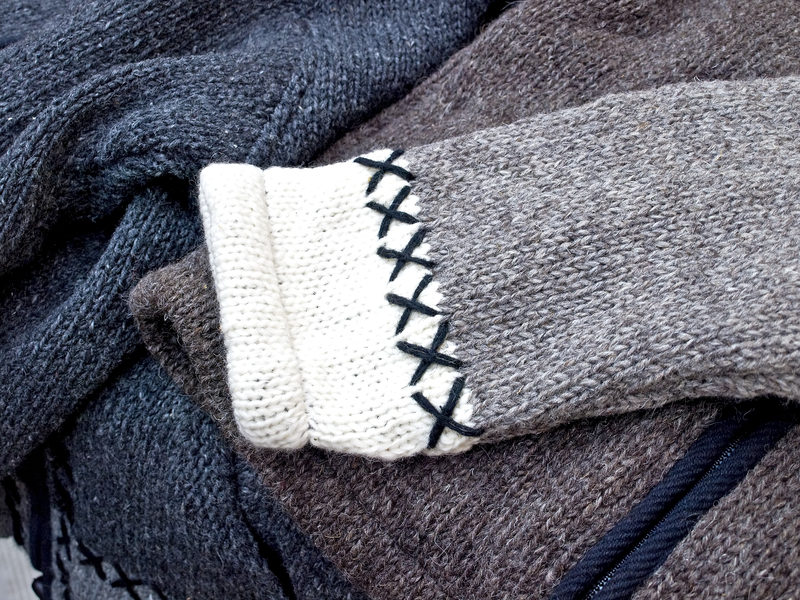Clever Ways to Save Money When Disposing of Bulky Waste Items
Disposing of bulky waste items--such as old furniture, appliances, mattresses, and construction debris--can be both challenging and expensive. Whether you're decluttering your home, downsizing, or renovating, figuring out what to do with these large objects can easily become overwhelming if you're not aware of cost-effective solutions. The good news? There are plenty of clever strategies and expert tips to save money while responsibly disposing of big waste items. In this guide, we'll explore the most practical and creative ways to keep costs down, protect the environment, and even make a few bucks in the process!
Understanding Bulky Waste and Why Disposal Costs Add Up
Bulky waste includes any household items that are too large or heavy for regular trash collection. Common examples include:
- Old sofas and couches
- Large appliances (fridges, ovens, washing machines)
- Mattresses & box springs
- Carpets and rugs
- Garden furniture
- Renovation debris (drywall, wood, large fixtures)
There are several reasons why the disposal of these items can cost more than regular waste. These include specialized handling, extra transportation requirements, landfill fees, and environmental regulations. But with smart planning and a bit of research, you can avoid the high price tag!

1. Utilize Free or Subsidized Bulk Waste Collection Services
Check Your Local Council or Municipality Programs
Many cities and towns offer residents annual or scheduled bulky waste pickups as part of local services. These programs either collect large waste items for free or at a significantly reduced cost compared to hiring private services. Visit your city's waste management website or call their customer service to find out:
- The pickup schedules for bulky items
- The list of accepted items (and restrictions)
- How much it costs, if anything
- Booking requirements (most require advance scheduling)
Pro tip: Book as early as possible! These slots can fill up quickly, especially during busy seasons.
2. Sell or Donate Items Still in Good Condition
Turning Waste Into Cash or a Charitable Act
One of the smartest (and greenest) ways to avoid disposal costs is to give your items a second life by selling or donating them. Many "bulky" items--like well-kept sofas, tables, or working appliances--are still valuable to someone else.
- Online Marketplaces: Use platforms such as Facebook Marketplace, Gumtree, Craigslist, or eBay to list large items. Often, buyers will collect directly from your home, saving you transport and disposal fees.
- Donation Centers & Charities: Organizations like Goodwill, Salvation Army, Habitat for Humanity, and local shelters may accept bulky items. Many offer free pickup--double win!
- Community Groups: Post on neighborhood forums or "freecycle" groups. Someone in your area may need what you're getting rid of.
Remember: Clean and repair items if possible to maximize your chances of rehoming them.
3. Dismantle and Downsize Large Items
Save on Fees by Reducing Your Waste Volume
Many facilities and private haulers charge by volume or weight. By dismantling bulky items--such as taking apart furniture, removing doors from appliances, or breaking down shelving--you can often fit more into your vehicle or regular bins, thus reducing disposal expenses.
- Deconstruct wooden furniture for easier recycling or burning (if allowed in your area)
- Remove mattresses from box springs, and break down bed frames
- Compress soft furnishings--such as rolled-up carpets or foam cushions
Invest in a toolkit and gloves--your wallet, and the planet, will thank you.
4. Drop-off at Local Recycling or Waste Facilities
Comparing Drop-off Costs to Collection Services
If you have access to a car or van, self-hauling can save significant money versus hiring a professional waste removal service. Most cities have public drop-off centers, recycling yards, or landfills where residents can deposit large items for a nominal fee, or sometimes for free (especially for recycled goods).
- Find your nearest facility and check the fee schedule online
- Sort items by material (metal, wood, electronics, fabric) beforehand to maximize savings
- Some facilities offer free disposal for certain items, such as white goods or scrap metal
Call ahead to confirm accepted materials, proof of residency requirements, and any restrictions.
5. Take Advantage of Appliance & Mattress Take-Back Programs
Retailer and Manufacturer Recycling Initiatives
When buying a new mattress, fridge, washing machine, or similar, always ask if the retailer has a take-back or trade-in service for your old item. Many companies--like IKEA, Best Buy, or local appliance stores--offer haul-away deals that are much cheaper than municipal bulk disposal.
- Check online during the purchase process for special deals or incentives
- Some manufacturers offer free recycling pickup as part of corporate environmental programs
- Look for mattress recycling facilities, as some states require retailers to accept old mattresses for disposal
This not only saves money but is a responsible way to ensure proper recycling of hazardous materials and valuable components.
6. Hire a Junk Removal Service--But Shop Around
How to Get the Best Price for Large Waste Disposal
If you need to dispose of a lot of bulky waste quickly, hiring a junk removal company can be efficient. To avoid overspending, keep these tips in mind:
- Get multiple quotes from companies in your area--prices can vary drastically
- Choose weekdays or off-peak times, when some companies offer discounts
- Combine jobs with neighbors or friends to secure group rates or split travel fees
- Ask about discounts for seniors, students, or veterans
- Double-check exactly what's included--hidden fees sometimes lurk in the fine print
If you're willing to put in a bit of labor beforehand, pre-sorting and staging your items can reduce the time and cost of junk removal.
7. Rent a Skip or Dumpster, Collaborate with Others
Shared Disposal for Maximum Savings
For home renovations or large cleanouts, a skip or dumpster rental is often necessary. These are typically priced by size and duration. To be budget wise:
- Share the skip or dumpster with neighbors or friends doing their own clear-outs
- Fill the container as efficiently as possible (break down items, stack neatly)
- Book the smallest size you realistically need--waste less space, waste less money
- Be aware of weight limits and overfilling fees
Coordinating with others can cut your personal costs by half or more, and you'll each save time.
8. Upcycle or Repurpose Old Large Items
Creative Solutions That Save Money and the Planet
Instead of sending bulky household items to landfills, consider upcycling, repurposing, or DIY projects. Not only can this save on disposal costs, but you might also create something useful or unique!
- Transform an old ladder into shelving
- Turn timber offcuts into garden planters
- Convert a worn armchair into a pet bed
- Paint a coffee table for a "vintage chic" look
Share or trade your creations locally--platforms like Etsy or local craft fairs could even provide a new source of income.
9. Use Community Bulk Waste Events and Clean-Up Days
Save Money by Tapping into Local Initiatives
Many towns and neighborhoods host annual or seasonal bulk waste collection days where residents can drop off (or place out for pickup) large items free of charge. These clean-up drives help communities stay tidy--so take advantage!
- Watch for notices on your council website or community center boards
- Plan your disposals around these events, especially for non-sellable or damaged items
- Coordinate with neighbors to share rides or hauling costs
10. Consider Renting or Borrowing a Vehicle for Transport
Save by Hauling Bulky Waste Yourself
If you don't own a vehicle suited for large items, renting a van or truck for a few hours could be far less costly than hiring removal services. Try:
- Peer-to-peer vehicle rentals (e.g., Turo, Getaround, local services)
- Borrowing a pickup or trailer from a neighbor in exchange for coffee or a small favor
- Combining your own items with a friend's to split the cost
Plan your trip wisely--map out the nearest recycling centers or drop-off points, and call ahead to ensure they accept your items. This is a great way to save money and maintain flexibility in your disposal choices.

Frequently Asked Questions About Cost-Effective Bulky Waste Disposal
- How can I get rid of bulky waste items for free?
- Use council collection services, donation centers, or schedule disposal on community clean-up days.
- What is the cheapest way to dispose of a sofa or mattress?
- Donate if possible; otherwise, use municipal drop-offs or retailer take-back programs when buying new items.
- Can I leave large items on the curb?
- Only during approved collection periods; illegal dumping carries fines in most areas.
- Is dismantling furniture worth the effort?
- Yes--a smaller volume can mean lower or even no disposal fees, especially if you can fit it in your regular bin collection.
Conclusion: Dispose of Bulky Waste Smartly and Economically
Disposing of bulky household items doesn't have to break the bank. With a combination of creativity, planning, and community resources, you can save money, support the environment, and maybe even help your neighbors in the process. Whether you're selling, donating, dismantling, or reusing, there's a clever way to manage large waste items for every situation and budget.
Remember: Always check local regulations before disposing of bulky items and aim for responsible, eco-friendly options whenever possible. With these clever ways to save money on bulky waste disposal, your home (and wallet) will thank you!